The Iliad, as we know it today, consists of 15,693 lines of poetry.

We call it an epic poem because of its length and because it tells a dramatic story about gods and heroes from long ago. Yet, the Iliad is based on an historical event, and archaeologists have even identified an actual site for where it took place—Troy (see pages 42–45). This city flourished during the Mycenaean Age, a time of palaces and wealth in ancient Greece. Around the 12th century B.C.E., Troy was destroyed, along with many other once-prosperous palace centers. Why is unclear, but evidence indicates that Greece was plunged into a Dark Age that lasted 400 years. Even the art of writing was lost.
Bu hikaye Dig Into History Magazine for Kids and Teens dergisinin October 2017 sayısından alınmıştır.
Start your 7-day Magzter GOLD free trial to access thousands of curated premium stories, and 9,000+ magazines and newspapers.
Already a subscriber ? Giriş Yap
Bu hikaye Dig Into History Magazine for Kids and Teens dergisinin October 2017 sayısından alınmıştır.
Start your 7-day Magzter GOLD free trial to access thousands of curated premium stories, and 9,000+ magazines and newspapers.
Already a subscriber? Giriş Yap

Worshiping Heaven
For almost 500 years, emperors of the Ming and Qing dynasties offered sacrifices and prayers at the Temple of Heaven in Beijing.
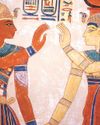
Peace Reigns
The news spread throughout Egypt—a new pharaoh, Ramses III, now sat on the throne.
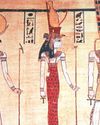
Problems To The East
Ramses III, the second king of Egypt’s 20th Dynasty, is viewed as Egypt’s last truly great pharaoh.
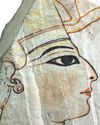
The Successors
Following the death of Ramses III, eight pharaohs, all named Ramses, ruled Egypt.
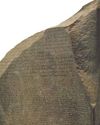
Stone Code
Hundreds of ships, led by the French general Napoleon Bonaparte, sailed from France in May 1798 on a secret mission.

Up & Away!
Eclipse observers often face unexpected difficulties, sometimes on their way to their chosen sites and sometimes at a site itself.

Edison's Eclipse Adventure
Thomas Edison (1847–1931) is the best-known inventor in American history.
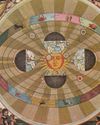
Digging Up Copernicus
The scientist “who made the Earth a planet” is how the Harvard-Smithsonian astronomer Owen Gingerich refers to Nicolaus Copernicus (1473–1543). Copernicus’ path breaking book, On the Revolutions of the Heavenly Spheres,challenged the centuries-old belief that the Earth stood stationary at the center of the cosmos.
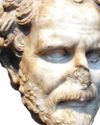
Demosthenes & Cicero
Even today, more than 2,000 years after they lived, Demosthenes and Cicero are still considered two of history’s most outstanding orators.

Confucius & Socrates
Some teachers are so inspirational that their influence lives on long after they die.